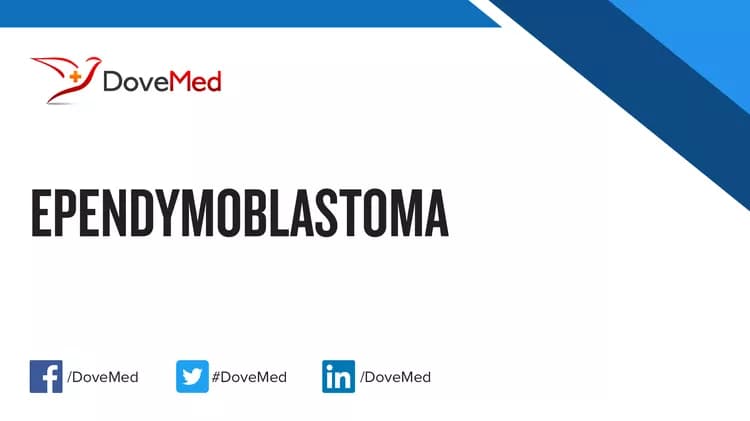The topic Ependymoblastoma you are seeking is a synonym, or alternative name, or is closely related to the medical condition Ependymoma.
Quick Summary:
- An Ependymoma is a type of brain tumor. A brain tumor may be described as a mass of abnormally growing cells arising from the brain tissue (brain parenchyma and meninges) or the spinal cord (central spine). The brain along-with the spinal cord constitute the central nervous system (CNS) of the body
- Broadly, brain tumors are classified as benign (non-cancerous) and malignant. Malignant tumors are cancerous and can spread or metastasize to other regions of the body. They generally exhibit rapid growth and, in some cases, may present symptoms during the early stages of development
- The World Health Organization (WHO) classifies central nervous system tumors according to their grade and histological subtypes. A tumor subtype is determined by a pathologist after examining a tissue biopsy of the tumor under the microscope. This WHO classification system is used by healthcare professionals all over the world in diagnosing and treating these tumors
- Ependymoma is a slow-growing glioma of the brain and spinal cord arising from ependymal cells. The ependymal cells line the walls of the ventricles. Ependymomas are commonly observed in children and young adults, particularly in the posterior fossa of the brain; although, a much wider age group of individuals may be affected. The brain is made of two main cell types - the nerve cells (neurons) and glial cells (non-neuronal cells); gliomas arise from the glial cells
- The ventricles are a network of cavities within the brain and spinal cord tissues that produce and transport cerebrospinal fluid (CSF) within the central nervous system. The ventricles and the CSF that they hold together, act as a shock absorber for the brain protecting it from head injuries. The CSF also helps in waste disposal and transportation of hormones
- Ependymoma are WHO grade II brain tumors, meaning they are low-grade tumors. The grade II tumors grow faster than grade I tumors, which are the most benign of the brain tumors. Grade II tumors tend to be minimally infiltrative into the surrounding brain tissue but have the possibility to recur as a higher grade tumor following treatment. It is less likely to grow and spread than malignant tumors
- Per WHO, Ependymoma forms a part of group called “ependymal tumors”. Histologically, there are four Ependymoma subtypes and all are WHO classified grade II tumors. These are called:
- Cellular Ependymoma - among all Ependymoma subtypes, it is the most common spinal cord tumor that is reported in children and adults
- Clear Cell Ependymoma - it is an uncommon tumor that is predominantly found in children and young adults, and found in the supratentorial region of the brain
- Papillary Ependymoma - it is predominantly observed in children and young adults, and found in the infratentorial region of the brain
- Tanycytic Ependymoma - it is observed in children and adults; most of them are found in the cervical to thoracic region of the spinal cord
- The cause of formation of Ependymoma is not well-established. It is reported that a combination of several factors may play a role in their formation, including genetic, environmental, and lifestyle-related; several chromosomal and genetic alterations have been identified. The risk factors may include the presence of certain genetic disorders, exposure to ionized radiation, viral infections, and even head trauma
- Based on the location, Ependymomas are categorized as supratentorial, infratentorial, or spinal. In general, individuals may experience headaches, weakness in different parts of the body, convulsions, vision disturbances, including obstructive hydrocephalus. Large-sized tumors may compress adjacent brain tissue resulting in complications; some Ependymomas are known to disseminate to other locations within the CNS. Severe complications may develop during/from treatment too
- The treatment modalities may include surgery, radiation therapy, and the administration of certain drugs to slow progression of the tumor. The prognosis for individuals with Ependymomas depend on a wide variety of factors, including the tumor subtype, size of the tumor, age and overall health status of the individual. Generally, complete surgical resections when possible, helps ensure better prognoses
Please find comprehensive information on Ependymoma regarding definition, distribution, risk factors, causes, signs & symptoms, diagnosis, complications, treatment, prevention, prognosis, and additional useful information HERE.
Related Articles
Test Your Knowledge
Asked by users
Related Centers
Related Specialties
Related Physicians
Related Procedures
Related Resources
Join DoveHubs
and connect with fellow professionals


0 Comments
Please log in to post a comment.